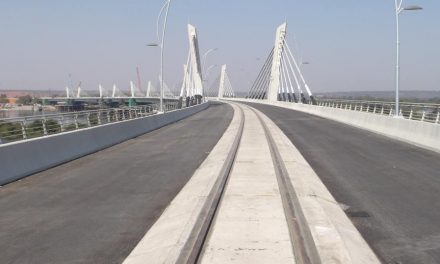
It is good to be reminded of what is most important to us but then we must be consistent

The State of the Nation Address is an elegant document. It encapsulates all our dreams and desires, and it does not shy away from naming those areas where we are lacking, or have steered off course.
It was a pleasure reading through the whole statement. The eloquence in phrasing what goes through most people’s minds is commendable. For a person working with documents every day of his life, it was immediately obvious that much thought and consideration have gone into preparing the text.
If all sounds so good and noble on paper, then where have we lost the track?
I pondered this question as I dug deeper and deeper into this tome that is supposed to be the annual snapshot of our health as a nation, or in the words of the President, “Let us pull together, strengthened by unity, galvanized by liberty and fortified by justice.”
The State of the Nation Address really covers everything that matters to us as Namibians. Deconstructing the document, I found references to at least 31 overarching themes or topics that impact our daily lives. From this assessment alone, it is obvious that any serious discussion of the Address will not do justice by trying to cover it all.
Therefore I picked only three elements which I believe to be fundamental to the majority of the punted themes: – water, fertility and foreign relations.
Water enjoyed more than just the cursory mention. The President referred to this commodity where he summarises the improvement in the lives of ordinary Namibians, using access to potable water as a benchmark for wellness and better living conditions. There is nothing to fault in his assessment, also not in the prime spot water enjoyed amongst all the other issues. I fully agree that clean drinking water for every Namibian within a convenient distance, preferably in every person’s home, is a sine qua non.
However, what I would have loved to see is a far greater emphasis on the overall availability of raw water. Before we can get to any of the more elevated goals of giving every Namibian drinking water, we first have to come to the point where the raw material is available in sufficient quantities to carry the rest of the downstream beneficiation process.
Water is Namibia’s development singularity. It is the one common substance of which we not nearly have enough. Whether we make water by desalination, extraction, pumping the large rivers, using innovative technology, or whatever means, we will constantly run into existential bottlenecks for the pervasive lack of water.
To overcome this clear and present shortcoming means that we will have to allocate much more resources to the science of “making water.” Water is of such paramount importance, we can easily get rid of several of the obsolete ministries and dedicate a whole new ministry to the sole task of overseeing all aspects of water, from the point of extraction to where it ends up in our taps.
As I read through the Address, I sensed a slight consternation as I progressed, turning page after page, some with rather convincing statistics but not finding any reference to fertility.
If a lack of water is our main problem, now and in future, then fertility is our second most pressing problem. One does not need fancy modelling or a crystal ball to figure out that in an economy that got smaller three years in a row with a population that continued to grow at 3.5% unabated, everybody is now poorer roughly by 10%. Of course, this is an oversimplification, but it is not an invalid observation that as long as the population growth rate exceeds the economic growth rate, poverty will only continue to increase. So will unemployment and inequality.
I do not know how the President is going to sell it to his constituency that we can not afford to proliferate indiscriminately. At some point we will have to accept responsibility for the children we bring into this world, and we will have to embrace the available technology with which we control our birth rate.
I know that any discussion about fertility and birth control opens a can of worms and I do not want to involve myself with the ethics, but I need to underscore the fundamental premise that uncontrolled growth just makes us poorer by the day. It would have been nice to see the President and his army of advisors also realise this inevitability.
Finally, it was humorous to read about all the African and Middle East issues with which we concern ourselves but then we fall into the double-standards trap of condemning Marocco but turning a blind eye to Somalia, or any of the disfunctional Sahel states for that matter. Even closer to home, we condone a profligate kingdom but then we want to go solve North Africa’s problems.
I am sorry, Mr President, but it simply does not ring true.












































